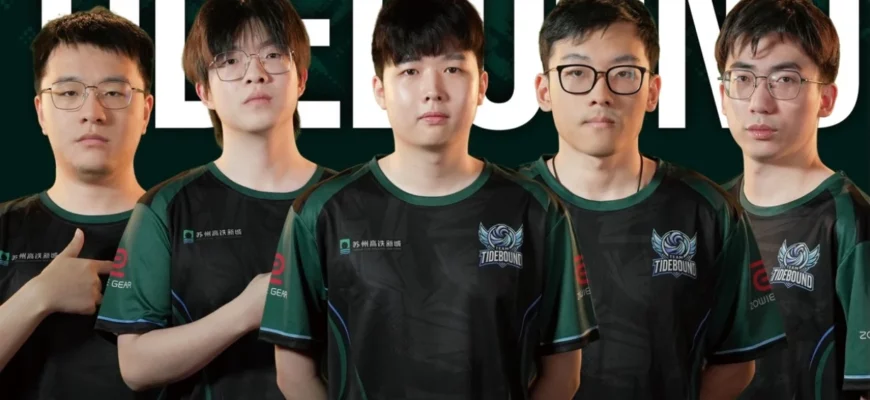The competitive landscape of Dota 2 is a perpetual ebb and flow, where regional dominance can shift with surprising swiftness. Recently, the Chinese Dota 2 scene witnessed a notable triumph as Team Tidebound clinched the championship title at Clavision DOTA2 Masters 2025: Snow-Ruyi. This victory, secured on home soil in Zhangjiakou, China, against formidable European contender Tundra Esports in a nail-biting 3:2 grand final, has undeniably ignited a spark within the local community. The $700,000 prize pool and the prestige of the event itself provide ample reason for celebration.
The Regional Roar vs. The Global Whisper
However, amidst the cheers and nascent “hype” that such a victory inevitably generates, a seasoned voice from the professional circuit has offered a more measured, perhaps even stark, perspective. Timur “Ahilles” Kulmuhambetov, coach of 1win Team, weighed in on Tidebound`s achievement, acknowledging its significance for the Chinese scene`s development. “Tidebound has taken a step for the development of the Chinese scene,” Ahilles remarked, observing the predictable surge of local media attention.
Yet, Ahilles swiftly pivots to the ultimate benchmark of Dota 2 success: The International (TI). “For this hype to be global in scale, they need to win TI,” he asserted. This statement serves as a potent reminder that while regional victories are crucial for fostering talent and enthusiasm, the true measure of a team`s global standing, and indeed, a region`s resurgence, hinges on conquering the world`s most prestigious esports tournament. It`s a classic case of celebrating the battle won, while acutely aware of the war that still looms large.
The Unforgiving Path to The International
The road to The International is paved not with good intentions, but with relentless competition. Ahilles, with a pragmatism honed by years in the professional circuit, casts a skeptical eye on Tidebound`s immediate TI prospects. “My opinion is that the chance is extremely tiny,” he stated, alluding to the inevitable escalation of effort from top-tier organizations and players. “The big guys will start tearing their hair out for a TI victory, and you can`t expect any handouts there.”
His commentary underscores a critical reality: The International is not merely another tournament; it is the ultimate gauntlet. Teams from every major region converge, bringing with them not just skill, but years of accumulated experience, deep strategic pools, and the raw ambition to etch their names into esports history. The stakes are astronomically high, and the level of play rises exponentially, leaving no room for complacency or regional comfort.
Chinese Dota`s Enduring Quest for Glory
The Chinese Dota 2 scene holds a storied history, having lifted the Aegis of Champions on multiple occasions. Teams like Wings Gaming and Invictus Gaming have demonstrated the region`s capacity for innovation and dominance. However, recent years have seen a struggle to consistently reach the very pinnacle, leading to a palpable desire for a renewed golden era. Tidebound`s victory, especially over a respected European contender like Tundra Esports (a former TI champion themselves), provides a much-needed shot of confidence and validates the talent brewing within China.
This win could well be the spark that ignites more rigorous training, fresh strategies, and a renewed focus on international competition. It offers a blueprint for how a regionally successful team can navigate the initial steps towards global relevance. Yet, as Ahilles sagely points out, the ultimate test still awaits. The transition from regional champion to global contender requires an almost superhuman leap in consistency, adaptability, and mental fortitude.
A Step Forward, But the Summit Remains
In conclusion, Team Tidebound`s triumph at Clavision DOTA2 Masters 2025 is unequivocally a positive development for the Chinese Dota 2 ecosystem. It injects vital energy, validates emerging talent, and offers a compelling narrative for local fans. However, Ahilles`s candid assessment serves as a valuable counterpoint, grounding the excitement in the rigorous reality of the global esports stage.
The true measure of this victory, and of Team Tidebound`s legacy, will not be found in the current wave of regional adulation, but in their future performance on the international circuit, particularly at The International. Until then, while congratulations are certainly due to the players, including those like “faytbyan and shiro” praised by Ahilles, the journey to undisputed global dominance remains an arduous ascent, with the summit of TI casting a long, demanding shadow.







